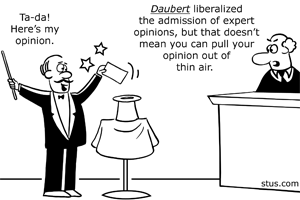Katie Kelly
Manjoo’s chapter 4 brings to light, once again, the credibility of any source. Recalling Booth’s commentary on rhetoric, it seems that all it takes is general and academic rhetoric to make a large enough impact on audiences; regardless of the validity of content. The worse is the term ‘expert’ that gets thrown around with a vague understanding of what it entails. Ask as many people as you want and the general consensus on the definition of “expert” is someone who knows a lot about something. But the actual use and dictation of the title is something far deeper.
Many of the examples used in this chapter when discussing the peripheral and central channels of processing really are concerned with how we shortcut ourselves into knowing who is an expert and who is not. The numerous letters and certifications that follow a name are a big tell, and sometimes if we are not convinced, a list of accomplishments should get us to the conclusion of who’s an expert. Should a list of letters and accomplishments be the determining factor? What about in areas that don’t exactly get to have those kinds of lists? And who is verifying the list? Manjoo almost assumes everyone has a political agenda to some extent that determines the ultimate bias being contributed to anyone conclusion, which is a bleak outlook, but potentially realistic.
In forensic sciences there is a Daubert standard. This standard deals with determining the validity of an expert witness (ex document examiner, latent print examiner, etc.) and the associated evidence in court. The standards put forth to determine the “expertness” of these witnesses are usually determined by professional societies. This is to ensure that everyone met the proper testing and training requirements prior to performing an exam and making conclusions. This may be a shortcut for the jury, assuming the professional organization went through the central route to verify the credentials, to assume the expert on the stand is in fact an expert. However, it is up to the lawyers in the courtroom to call out any one person trying to pass as an expert witness, if this is not done, the jury can mistake an amateur who dabbled but was never trained seem like an expert.

What about the fields that there is no professional organization vetting the kings of content? There are plenty of new emerging fields everyday that have yet to set standards as they are still being carved out. For simplisty sake, let’s take something a bit more abstract like relationship advice. Which friend to you go to for advice? A friend who dates around and has many relationships but is still single or a friend who has had one partner this entire time and still in a committed relationship? Who is the true expert in this case? On one hand, the long term partner friend obviously knows how to keep a relationship going but the single one knows what can make and break relationships. In this case, it is up to you to decide the expert. And in many cases, regardless of lettered credentials and accomplishments, it is up to us to decide who is an expert and who is not.
That’s a very dangerous game to play when selective exposure is how we decide who’s conclusions are valid.

When I was reading the fourth chapter of the book, the same question came in mind how do we know who has the actual expertise. It is difficult to make an accurate choice between experts; Booth mentioned three types of rhetoric and we need understanding in all three rhetorics. We are ignorant in most parts of the world, we should understand how rhetorics work and can apply that understanding in passing a judgment. However, it is still difficult as he mentioned all rhetorics are “highly fallible” and you can pass a false judgment even if you are expert in a particular subject.
LikeLike